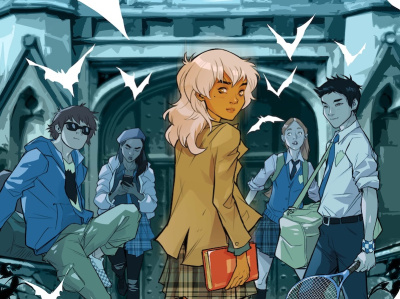 With summer coming to an end, it’s time to catch up on some reading. Here are three titles that came out in the last few months that look at comics culture from a business, legal, social and historical perspective.
With summer coming to an end, it’s time to catch up on some reading. Here are three titles that came out in the last few months that look at comics culture from a business, legal, social and historical perspective.Comic Art, Creativity and the Law by Marc H. Greenberg (Edward Elgar Law and Entrepreneurship Series, 2014). It’s been more than 75 years since the first appearance of Superman and many of the foundational legal issues surrounding the creation of comics’ intellectual property are still in dispute. How has copyright law evolved? What do the courts have to say about work for hire? How do the legal definitions of obscenity, parody and fair use apply to sequential art?
Marc Greenberg, a practicing attorney and professor of law at Golden Gate University School of Law, combines his professional expertise and deep knowledge of comics history to provide the first book-length treatment of the subject of law as it applies to comics. Though the book is intended (and priced) for professionals, it is full of colorful and relevant examples of the comics industry’s struggles with censorship, creator rights, licensing, international distribution and other legal issues.
Most interestingly, the book explores new issues arising from comics’ transition into the digital and transmedia age. Greenberg explores how different scenarios for the future of comics culture might impact the legal profession, and how the integration of comics into the larger world of cross-platform entertainment complicates the legal picture even further.
My enthusiasm for this book is no secret: I’m quoted on the back cover and had the pleasure of discussing these issues with Greenberg at San Diego Comic-Con this summer. At a list price of $104 for the hardcover (on Amazon), it’s not exactly an impulse purchase for the casual fan. But if you are a legal professional in the industry, I suspect you will find Comic Art, Creativity and the Law an invaluable resource for understanding the issues.
It Happens at Comic-Con: Ethnographic Essays on a Pop Culture Phenomenon, edited by Ben Bolling and Matthew J. Smith (McFarland, 2014). Academic study of comics themselves in nothing new, but professors Bolling (UNC) and Smith (Wittenberg University) have definitely hit on a novel approach by focusing the methodological lens of ethnography--usually used to study foreign cultures and societies – on comics fandom as expressed at conventions.
It Happens at Comic-Con is a timely collection of 13 scholarly essays looking at different aspects of convention culture, with titles like "Actualized Fantasy at Comic-Con and the Confessions of a 'Sad' Cosplayer," "Soaring to New (?) Heights: Cute, Tough Geek Girls and Post-Feminist Discourse," "Facing Front True Believers: Panels as Exercises in Image Management," and "Tense Proximities Between CCI's Comic Book Consumers, Fans and Creators."
The studies result from first-hand research conducted at San Diego Comic-Con, interviews, observations, and applications of various theories of communication, community and ethnographic studies. Some of the topics will be familiar to attendees of Smith and Bolling’s annual panel at the SDCC Comic Arts Conference, where students present their findings.
As an observer of convention culture primarily from the business and commercial perspective, I found the analyses of the social dynamics of fandom fascinating, although occasionally obscured in academic jargon. But most interesting is the emerging consensus that fan culture represents a unique social structure worthy of academic study and deeper understanding.
American Comic-Book Chronicles: The 1970s, edited by Jason Sacks (TwoMorrows Publishing, 2014). These days there is no shortage of books on the history of comics, thanks in part to the efforts of publishers like TwoMorrows. While some of these are of spotty quality and dubious veracity, the American Comic-Book Chronicles series is the top of the line in terms of both readability and production value.
The decade of the 1970s of course featured the transition of comics from the Silver Age of the 1960s to the dawn of the direct market era. It saw the demise of the undergrounds, the rise of independents, a generational shift in the creative community, and halting efforts to rescue the mass media image of comics from the "Zap! Bam! Pow" camp era of the Batman TV series.
Sacks and his collaborator Kevin Dallas explore this era in a series of essays covering each year of the decade. These are exhaustive in scope, covering not just the famous and critically-acclaimed work of the period, but surveying the entire comics publishing space (backed by circulation figures), the inside business story, and the whole media space surrounding comics culture, from Saturday morning cartoons to 7-11 Slurpee cup giveaways.
The work is elevated by the readability of the text, which takes its cue from the narrative style of Sean Howe’s Marvel: The Untold Story, but goes into substantially more depth--and the extensive, perfectly-chosen illustrations that accompany each chapter.
For fans like me who discovered comics as kids during that era, the book is a special treat in its attention to details that I thought I was the only one who remembered, and for its ability to put those details into a broader context. Definitely gets my highest recommendation.
--Rob Salkowitz (@robsalk) is author of Comic-Con and the Business of Pop Culture.
The opinions expressed in this column are solely those of the writer, and do not necessarily reflect the views of the editorial staff of ICv2.com.







